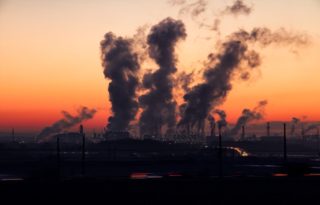-
IEA releases its plan for a sustainable recovery
Date posted:
-
-
-
Post Author
Patrick LaveryCombustion Industry News Editor
-

The International Energy Agency has released a Special Report on Sustainable Recovery, which outlines a three-year plan that governments can follow to guide their spending that simultaneously spurs economic growth and develops a cleaner power sector. The plan, the results of a collaboration with the International Monetary Fund, claims to be able to achieve a boost in global economic growth of 1.1% per year (in additional to ‘normal’ growth), save or create 9 million jobs per year, and reduce annual global energy-related greenhouse gas emissions by 4.5 billion tonnes by the end of the plan (equivalent to around a 13.5% reduction from 2019 levels). In doing so, it would reduce air pollution by 5%, provide clean cooking “solutions” to ~420 million people, and provide electricity to a further 270 million. Investment of around US$1 trillion (€892 billion) would be required per year (compared to a total ~US$9 trillion already pledged in spending on the recovery), equivalent to around 0.7% of global economic output, in a mix of governmental and private finance. Thirty policy measures are detailed in the plan, spanning electricity, transport, industry, buildings, fuels and emerging low-carbon technologies. The IEA estimates that around 3 million out of the 40 million people that are directly employed by the energy industry have had their jobs put at risk or have lost them during the COVID-19 crisis, and an addition of another 9 million jobs (mainly in improving energy efficiency in buildings, improving grids, and in renewables) would be highly welcome. Some of the investment would improve grid resiliency for the future, particularly as a significant portion of grid infrastructure is in need of renewal – as evidenced by wildfires triggered by deteriorating transmission wires in California and Australia. IEA chief Fatih Birol has said of the plan that it is not what governments must do, but what they can do, and key political decisions are clearly to be made in the coming months that will shape how cleanly the world recovers.
